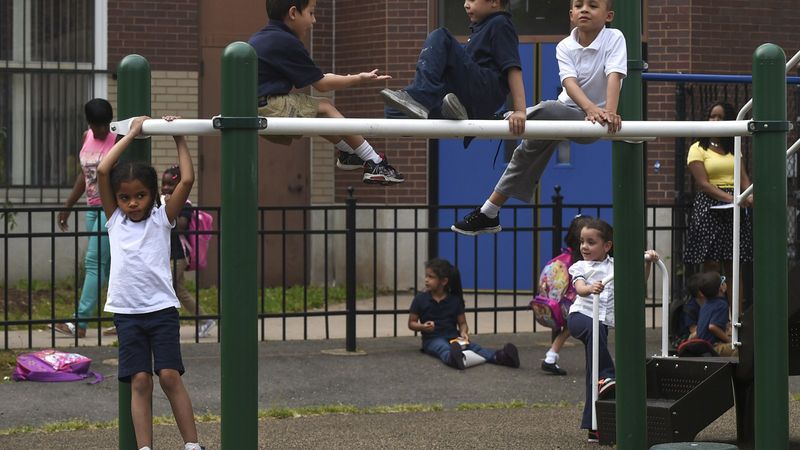Childhood is often depicted as a time of innocence and joy, but for some, it can be a period filled with challenges that aren’t always obvious at the time. Many people carry unresolved memories and subtle signs of a less-than-ideal upbringing into their adult lives. These signs might be hard to recognize, especially if you’ve told yourself ‘I had a normal childhood.’ However, understanding these signs is a crucial step toward healing and growth. Here, we explore nine indicators that your early years might not have been as blissful as you once thought.
1. Lack of Playful Memories

Do you find it difficult to recall playful, carefree moments from your childhood? Those early years often lacked the joyful chaos that comes from childhood adventures. Instead of days filled with laughter and games, your memories might revolve more around solitude or structured activities. Play is a crucial way children express themselves and learn about the world. A lack of these experiences can leave a void, making it harder to engage in playful or spontaneous activities as an adult.
2. Fear of Authority

Growing up, did interactions with authority figures fill you with dread rather than respect? A strict or overly controlling environment can lead to a fear of authority that persists into adulthood. You might find yourself avoiding confrontation or feeling anxious around supervisors or anyone in a position of power. This fear can stem from childhood experiences where authority wasn’t about guidance but control, leaving lasting impressions on your ability to assert yourself or feel at ease in hierarchical situations.
3. Over-Responsibility

Were you the one always taking charge, even when it wasn’t your role? Assuming adult-like responsibilities at a young age can make you feel like you never really had a childhood. This over-responsibility often comes from environments where you had to care for siblings or manage household tasks. As an adult, you might find it challenging to relax or feel an overwhelming need to control situations to ensure everything is in order, a habit rooted deeply in your early life.
4. Avoidance of Intimacy

Does the thought of letting someone in terrify you? This avoidance often traces back to childhoods where emotional connections were inconsistent or painful. If you learned early on that vulnerability led to hurt or rejection, you might keep others at arm’s length. This can result in difficulties forming deep, meaningful relationships. Emotional safety is crucial for intimacy, and without it, the walls you build to protect yourself from pain can also keep you from love.
5. Perfectionism

Do you hold yourself to impossibly high standards? Perfectionism can be a byproduct of a childhood where love and approval felt conditional. If you constantly sought validation through achievements, those patterns might have followed you into adult life. Every mistake feels magnified, and the fear of failure is ever-present, driving an endless cycle of striving for flawlessness. This can lead to stress and burnout, as nothing seems ever good enough, mirroring the conditional acceptance felt in youth.
6. Inability to Relax

Is relaxing an alien concept to you? For some, childhood was about constant vigilance. The inability to let go may have its roots in environments where unpredictability reigned. Always being on edge as a child means that as an adult, relaxing feels unsettling. It’s as if something might go wrong the moment you let your guard down. This ongoing tension can make downtime feel like a luxury rather than a necessity, impacting both mental and physical health over time.
7. People-Pleasing Tendencies

Were you always the peacemaker, desperately seeking approval? Being a people-pleaser often starts in childhood where love and acceptance were tied to pleasing others. You might have learned that keeping everyone happy was more important than your needs. As an adult, this can translate into struggles with boundaries and self-worth, constantly putting others first. This habit of sacrificing your happiness for others can lead to feelings of resentment and burnout, as your own needs are continually sidelined.
8. Fear of Abandonment

Does the thought of being alone fill you with dread? Fear of abandonment often originates from unstable or inconsistent caregiving in childhood. Experiences of unpredictability or loss can lead to anxiety around relationships. You might cling to people or become overly dependent, fearing they’ll leave you. This can impact friendships and romantic relationships, as the underlying fear of being left alone drives behavior. Understanding and addressing these fears are crucial in building healthy, secure connections.
9. Low Self-Esteem

Do you often doubt your worth? Low self-esteem is a shadow that can linger from a childhood where encouragement was sparse. Growing up with criticism or neglect can make self-doubt your constant companion. This lack of confidence can affect everything from career choices to personal relationships. Building self-esteem requires recognizing and challenging the negative beliefs ingrained in childhood. By nurturing a kinder inner dialogue, you can start to see yourself through a lens of compassion and acceptance.

Well, hello there!
My name is Jennifer. Besides being an orthodontist, I am a mother to 3 playful boys. In this motherhood journey, I can say I will never know everything. That’s why I always strive to read a lot, and that’s why I started writing about all the smithereens I came across so that you can have everything in one place! Enjoy and stay positive; you’ve got this!

